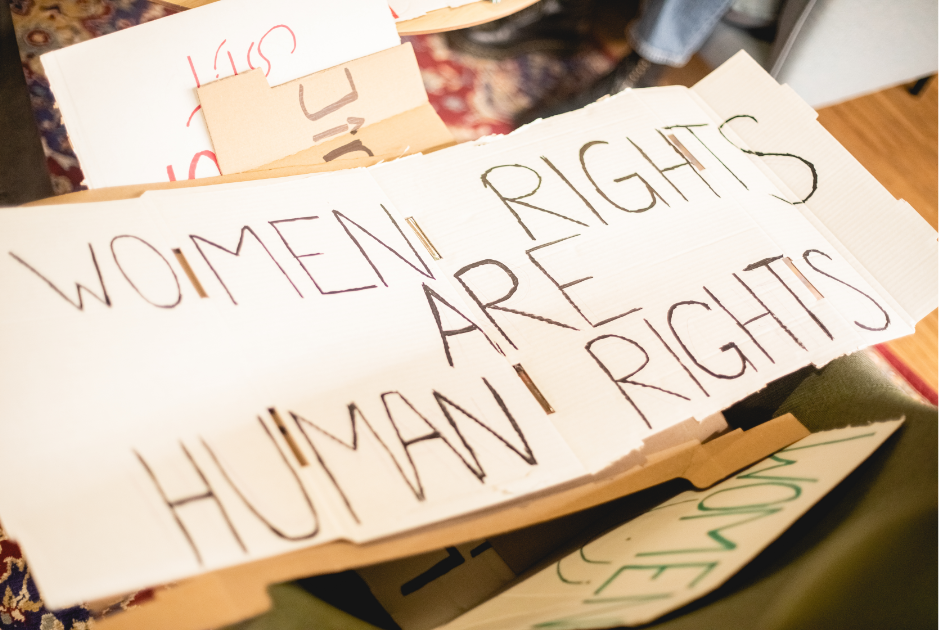Did you know that there are intact dinosaur eggs lying around? I did not know this.
An actual intact dinosaur egg, next to a replica. Image via Nature on PBS/YouTube.
I know this now because David Attenborough just cut one open on PBS' "Nature" show, and my 8-year-old self was screaming and jumping and doing laps around the room the whole time.
GIF via Nature on PBS/YouTube.
It wasn't just any old dinosaur egg. It was a titanosaur egg. Titanosaurs, as their name suggests, are — to use a presently fashionable term — yuuuge.
America has gone so dinosaur crazy, even some of our frontrunner presidential candidates have views straight from the Jurassic era! Photo by Branden Camp/Getty Images.
And on the inside, the skull of an actual dinosaur embryo...
Image via Nature on PBS/YouTube.
...plus more. Go ahead. Take a look. You won't be disappointed. You will be the opposite of disappointed. You will be ... appointed. So appointed:
The best part of all this? This is your tax dollars at work, folks! In a good way!
Any time there's an election, literally every single candidate pledges to lower taxes (Republicans for everybody, Democrats for everybody but rich people). It's a solid strategy! Most people like having more, rather than less money, and thus, hate paying taxes.
Most people, paying taxes. Photo by PDPics/Pixabay.
Not me, though. I love paying taxes (really). Love it with all my heart (straining credibility, but still telling the truth!) 'Cause it funds stuff like this. For all the talk about government waste this and small government that, paying David Attenborough to open meticulously preserved, 300 million year old dinosaur eggs on television is the fourth most-important thing I'd want the United States of America spending my money on after roads, bridges, and the fire department. And while programs like "Nature" do get a lot of support from private individuals, foundations, and corporations — (and it should be noted that private corporations — and private non-profits like the Corporation for Public Broadcasting — do sponsor a lot of PBS programming). including the Corporation for Public Broadcasting, a private nonprofit — they wouldn't be broadcast here if not for PBS.
Privately owned networks make good TV too, of course, mostly of the Kardashian variety. That's great! The world needs the occasional Kardashian. But these networks make choices based on what's going to make them a crap-ton of money, and ultimately, that determines what gets made, which is why we're currently on season 89 of "The Bachelorette."
PBS doesn't need to make a profit and can spend on what's weird and cool and interesting. Like David Attenborough and dinosaur eggs.
PBS actually doesn't cost us that much either.
The network cost taxpayers $445 million in 2012. That's roughly $1.42 per person and roughly 0.06% of the defense budget (which clocked in at $676 billion that year).
I'd pay $1.42 for that 90-second clip by itself.

Without public funding for cool, educational programming, you wind up with a bleaker programming picture. Sesame Workshop — the production company behind "Sesame Street" that depends heavily on government support — was recently forced to move the iconic show to HBO to pay its bills (new episodes will still air on PBS several months after they premiere on the cable network). It's a tough blow for a show that was launched with a mission of providing a free daily education to the neediest kids.
For now, at least, we still have awesome dinosaur egg dissections.
Anyway, I recommend stopping everything you're doing and watch Attenborough open up that egg over and over again. You earned it. You paid for it, after all.
GIF via Nature on PBS/YouTube.
Better yet, save it for Tax Day.





 Rihanna Nails GIF
Rihanna Nails GIF Yoga pants.Image via Canva.
Yoga pants.Image via Canva. Our natural lashes are nice just the way they are!
Our natural lashes are nice just the way they are! One step forward, many steps back. Image via Canva.
One step forward, many steps back. Image via Canva.  Homelessness is especially rampant on the West Coast.Image via Canva
Homelessness is especially rampant on the West Coast.Image via Canva
